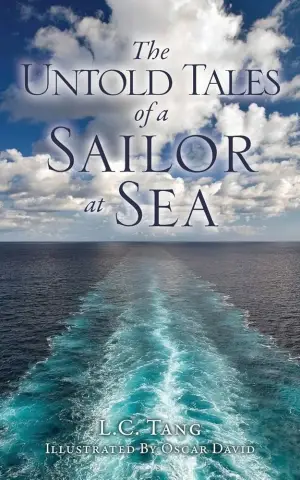Review of Orbital by Samantha Harvey: A Journey Beyond Earth
When I first glimpsed Samantha Harvey’s Orbital, I was captivated by the book’s audacious premise: six astronauts circling the Earth, contemplating life from the profound stillness of space. Curiosity piqued, I plunged into its pages, eager to see how a narrative might unfold in orbit. What I found was not just a meditation on space, but a poignant reflection on our fragile planet through a beautiful tapestry of human experiences.
Orbital centers on a diverse crew—two cosmonauts and four astronauts from various countries—on one of the last missions of its kind. They drift through a seemingly endless loop above Earth, grappling with emotions both personal and universal. As they witness sixteen sunrises and sunsets, they are not merely spectators but participants in a gathering of human stories. Harvey masterfully intersperses their earthly memories with moments of weightlessness; for instance, we meet Chie, who mourns her mother’s passing, highlighting the profound isolation that spaceflight can evoke.
The writing style is truly exquisite—prose that flows like the very cosmos the characters traverse. Harvey crafts lengthy, lyrical sentences that evoke the grandeur of space while simultaneously honing in on deeply human moments. A review quoted Joshua Ferris calling the work "ravishingly beautiful," and I couldn’t agree more. It’s a blend of poetic reflection and vivid imagery, where every description feels both weighty and light, encapsulating the duality of human existence. For example, when the astronauts see Earth from their vantage point, they’re struck by the paradox of its vastness and fragility, leading to musings like, “They experience a sense of gratitude so overwhelming that there’d be nothing they could do with or about it.”
However, the novel is structured more as a collection of meditations rather than a traditional narrative. Some readers may find the lack of an overt plot or character development frustrating. I appreciated the pacing, though—it felt intentional, mirroring the slow, mesmerizing orbits around our planet. It encourages contemplation, propelling the reader to reflect on our tiny place in the universe.
The mixed reactions I’ve encountered echo my own initial ambivalence. While some lament the absence of dramatic tension, others, like Austin C. Beeman, celebrate the "sense of wonder" that pervades each page. As Beeman eloquently puts it, “from the space station’s distance, mankind is a creature that comes out only at night.” This book offers a quiet urgency, beckoning us to reevaluate our connection to the Earth.
Orbital is a perfect fit for readers who relish slow, contemplative narratives and those intrigued by the wonders of space exploration. It beautifully balances a sense of the cosmic with the intimate, making it a profound elegy to our planet. Personally, it rekindled my sense of awe towards the cosmos and reminded me of the delicate beauty of our shared human experience.
In the end, whether you find comfort in character-driven stories or prefer a more philosophical approach, Harvey’s Orbital offers something for everyone—an invitation to ponder, connect, and reflect on what it means to be human in an ever-expanding universe.






